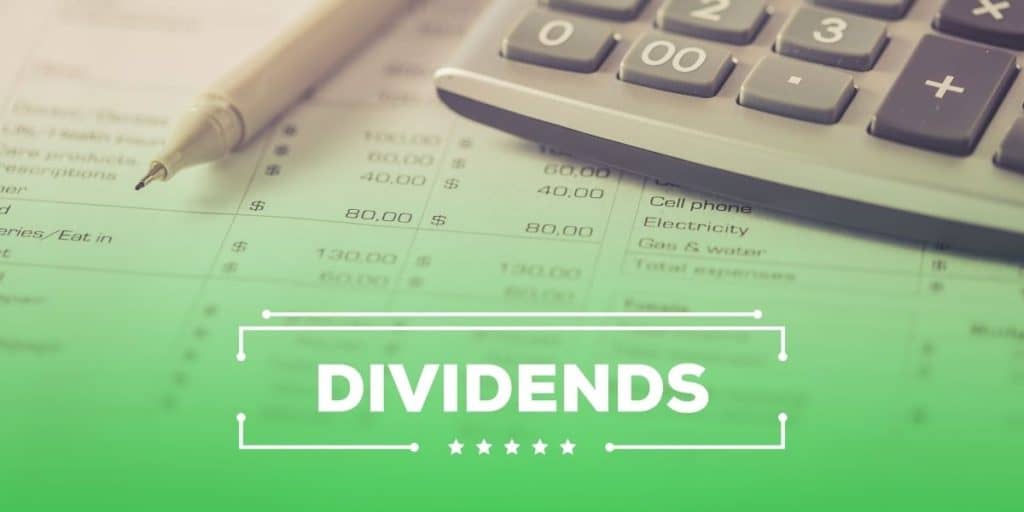A 401(k) plan lets you allocate a fraction of your salary towards retirement savings. The money you save in your plan is most commonly invested in mutual funds and potential individual securities. Given that these investment options often pay dividends, it makes sense to wonder why these gains aren’t always paid out to your bank account.
Reasons for your 401(k) not paying dividends depends on whether it’s invested in only mutual funds or mutual funds plus an employer’s stock. Mutual fund dividends are usually reinvested, so they’re never paid out. Participants can choose to reinvest/receive dividends on the employer’s stock.
Read on for an in-depth discussion on 401(k) investment options and how they determine whether your plan pays dividends.
IMPORTANT SIDENOTE: I surveyed 1500+ traders to understand how social trading impacted their trading outcomes. The results shocked my belief system! Read my latest article: ‘Exploring Social Trading: Community, Profit, and Collaboration’ for my in-depth findings through the data collected from this survey!
Table of Contents
The Lowdown on 401(k) Investment Options
Typically, a 401(k) plan lets you choose an investment vehicle (or several, depending on your goals) from the various types of mutual funds. The standard options include:
- Bond funds
- Stock funds
- International funds
- Potentially certain specialty mutual funds

If you work at a publicly-traded company, you might have an extra investment option for your 401(k). This comes in the form of company stock and allows you to invest some of your retirement savings in your employer’s stock, such as shares of the company you work for.
Given that your 401(k) savings get invested in mutual funds and possibly your employer’s stock, you’d expect to pocket dividends when they’re paid out by the funds and/or your company. However, this isn’t always the case.
Why? Let’s find out in the next section.
Why Isn’t Your 401(k) Paying Dividends?
Your 401(k) “isn’t paying dividends” because they’re automatically reinvested. The mutual funds (and possibly individual stocks) you’ve invested your 401(k) savings in have reinvested those dividends.
Just because you don’t see dividends paid out in cash doesn’t mean that your 401(k) investments haven’t realized those gains. Whether you have a say on whether to receive the dividends in cash or have them reinvested depends on the type of investments held in your 401(k) plan.
Limited Choices For Your 401(k) Allocations
When creating your 401(k) allocation, you don’t get to choose whether to have mutual fund dividends paid out to you or reinvested. Instead, that choice is made for you, and your dividends are reinvested to purchase more shares and grow your investment over time.
That’s different from a typical investment vehicle or account, where you get to choose whether to have dividends paid out or reinvested for more shares. Note that the above choice limitation doesn’t apply to dividends you may be eligible for when you hold your employer’s stock in your 401(k).
Why? Because the option to hold your employer’s stock in your retirement plan can also be treated as a qualified Employee Stock Ownership Plan (ESOP).
Why Is an Employee Stock Ownership Plan a Good Idea?
An ESOP is a good idea because it allows you to get specific tax benefits, such as a provision that allows employees to reduce their current income tax burden. They do so by deferring part of their salary’s taxation that goes into the plan.
Now, you might be wondering what it means for your dividends if the option to hold company stock in your 401(k) is treated as a qualified ESOP.
If that option is classified as such, ESOP rules take effect.
These rules allow 401(k) participants to decide whether to have company stock dividends paid out to them or reinvested in more stock. If you hold your employer’s stock in your 401(k) investment portfolio, you’ll always have an option on your 401(k) investment election form to choose between the two options.
So if you’re not seeing any dividends from your employer’s stock and are sure that they’ve been paid, chances are you elected to have them reinvested.
If you’d like to start receiving dividends on your employer’s stock, you can change your stock dividend election. However, you only get this chance once a year. And while choosing to receive dividends from your 401(k) might seem like an attractive prospect, it comes with tax implications like:
- Typically, any dividends you receive must be reflected in your tax return for the year you received them. This increases your taxable income (and subsequently your tax liability).
- If you withdraw those dividends before you turn 59.5 years old, you may face extra penalties on top of the ordinary income you pay on them.
How Does Dividend Reinvestment Grow Your 401(k)?
Having cited dividend reinvestment as the primary reason you’re not pocketing dividends from your 401(k), you’re probably wondering how it contributes to the growth of your retirement savings.
Sure, I mentioned that dividends reinvestment leaves you with more shares than before dividends were paid. But exactly how this grows your retirement plan might not be apparent to the inexperienced 401(k) participant.
Dividend reinvestment grows your 401(k) in two ways:
- When the value of the company stock or mutual funds increases.
- When you buy more stock or mutual fund shares.
To illustrate this, let’s look at a two-scenario example:
Scenario A
Let’s assume you invested $4,651 in 100 shares of mutual fund X at a per-share price of $46.51 on January 1st, 2018. Fast-forward to January 1st, 2019, you still have the same number of shares, but the share price has increased to $55.97.
In this scenario, the value of your investment has grown to $5,597(100 x $55.97) even though you haven’t purchased more shares because the share price has increased.
Scenario B
For this scenario, assume that the 100 shares you purchased on January 1st, 2018 pay a dividend of $1.42 per share on December 31st, 2018, when the share price had risen to $50 per share.
On December 31st, 2018, you’d be in line to pocket $142 in dividend distributions. If you used this money to buy more shares and the current share price of $50, you’d own 102.84 (100+ $142/$50) shares as of January 1st, 2019. By then, the share price had increased to $55.97.
So now, the total value of your investment is $5,731 (102.84x $55.97).
Notes: As you can see, the total value of the investment has grown more in scenario B than scenario A between January 1st, 2018, and January 1st, 2019. That’s despite the fact that the eventual share price (of January 1st, 2019) is the same ($55.97).
Why is this so? In a nutshell, the dividend reinvestment acquired more shares, which amplified the effect of the $9.44 increase in share price between January 1st, 2018, and January 1st, 2019.
If you add to that the effect of dividend reinvestment and compounding over many years, it becomes clear why dividend reinvestment can help a relatively small 401(k) fund snowball into something significant.

Author’s Recommendations: Top Trading and Investment Resources To Consider
Before concluding this article, I wanted to share few trading and investment resources that I have vetted, with the help of 50+ consistently profitable traders, for you. I am confident that you will greatly benefit in your trading journey by considering one or more of these resources.
- Roadmap to Becoming a Consistently Profitable Trader: I surveyed 5000+ traders (and interviewed 50+ profitable traders) to create the best possible step by step trading guide for you. Read my article: ‘7 Proven Steps To Profitable Trading’ to learn about my findings from surveying 5000+ traders, and to learn how these learnings can be leveraged to your advantage.
- Best Broker For Trading Success: I reviewed 15+ brokers and discussed my findings with 50+ consistently profitable traders. Post all that assessment, the best all round broker that our collective minds picked was M1 Finance. If you are looking to open a brokerage account, choose M1 Finance. You just cannot go wrong with it! Click Here To Sign Up for M1 Finance Today!
- Best Trading Courses You Can Take For Free (or at extremely low cost): I reviewed 30+ trading courses to recommend you the best resource, and found Trading Strategies in Emerging Markets Specialization on Coursera to beat every other course on the market. Plus, if you complete this course within 7 days, it will cost you nothing and will be absolutely free! Click Here To Sign Up Today! (If you don’t find this course valuable, you can cancel anytime within the 7 days trial period and pay nothing.)
- Best Passive Investment Platform For Exponential (Potentially) Returns: By enabling passive investments into a Bitcoin ETF, Acorns gives you the best opportunity to make exponential returns on your passive investments. Plus, Acorns is currently offering a $15 bonus for simply singing up to their platform – so that is one opportunity you don’t want to miss! (assuming you are interested in this platform). Click Here To Get $15 Bonus By Signing Up For Acorns Today! (It will take you less than 5 mins to sign up, and it is totally worth it.)
Conclusion
You have two investment options for your 401(k): investing in mutual funds or supplementing mutual fund investments with your employer’s stock. The reason your 401(k) dividends aren’t paid out to your bank account depends on which option you choose.
In the first option, you don’t have a say on what happens with the dividends. The dividends are automatically reinvested to grow your retirement savings. But in the second, your mutual fund dividends will still be reinvested automatically.
So if you hold your employer’s stock and still aren’t pocketing dividends, it’s because you elected to have them reinvested.
BEFORE YOU GO: Don’t forget to check out my latest article – ‘Exploring Social Trading: Community, Profit, and Collaboration’. I surveyed 1500+ traders to identify the impact social trading can have on your trading performance, and shared all my findings in this article. No matter where you are in your trading journey today, I am confident that you will find this article helpful!
Affiliate Disclosure: We participate in several affiliate programs and may be compensated if you make a purchase using our referral link, at no additional cost to you. You can, however, trust the integrity of our recommendation. Affiliate programs exist even for products that we are not recommending. We only choose to recommend you the products that we actually believe in.
